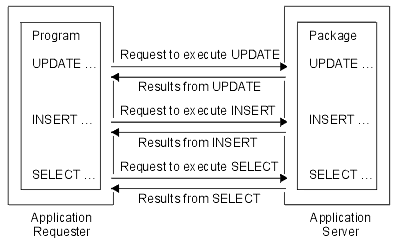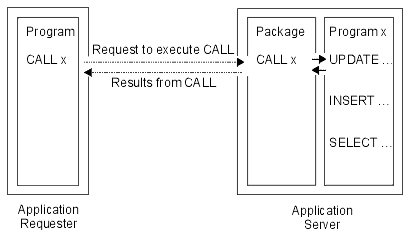
A routine is an executable SQL object. There are two types of routines.
A function is a routine that can be invoked from within other SQL statements and returns a value or a table. For more information, see Functions.
Functions are classified as either SQL functions or external functions. SQL functions are written using SQL statements, which are also known collectively as SQL procedural language. External functions reference a host language program which may or may not contain SQL statements.
A function is created with the CREATE FUNCTION statement. For more information about creating functions, see CREATE FUNCTION.
A procedure (sometimes called a stored procedure) is a routine that can be called to perform operations that can include both host language statements and SQL statements.
Procedures are classified as either SQL procedures or external procedures. SQL procedures are written using SQL statements, which are also known collectively as SQL procedural language. External procedures reference a host language program which may or may not contain SQL statements.
Procedures in SQL provide the same benefits as procedures in a host language. That is, a common piece of code need only be written and maintained once and can be called from several programs. Both host languages and SQL can call procedures that exist on the local system. However, SQL can also call a procedure that exists on a remote system. In fact, the major benefit of procedures in SQL is that they can be used to enhance the performance characteristics of distributed applications.
Assume several SQL statements must be executed at a remote system. When the first SQL statement is executed, the application requester will send a request to an application server to perform the operation. It will then wait for a reply that indicates whether the statement executed successfully or not and optionally returns results. When the second and each subsequent SQL statement is executed, the application requester will send another request and wait for another reply.
If the same SQL statements are stored in a procedure at an application server, a CALL statement can be executed that references the remote procedure. When the CALL statement is executed, the application requester will send a single request to the current server to call the procedure. It will then wait for a single reply that indicates whether the procedure executed successfully or not and optionally returns results.
The following two figures illustrate the way stored procedures can be used in a distributed application to eliminate some of the remote requests. Figure 1 shows a program making many remote requests.

